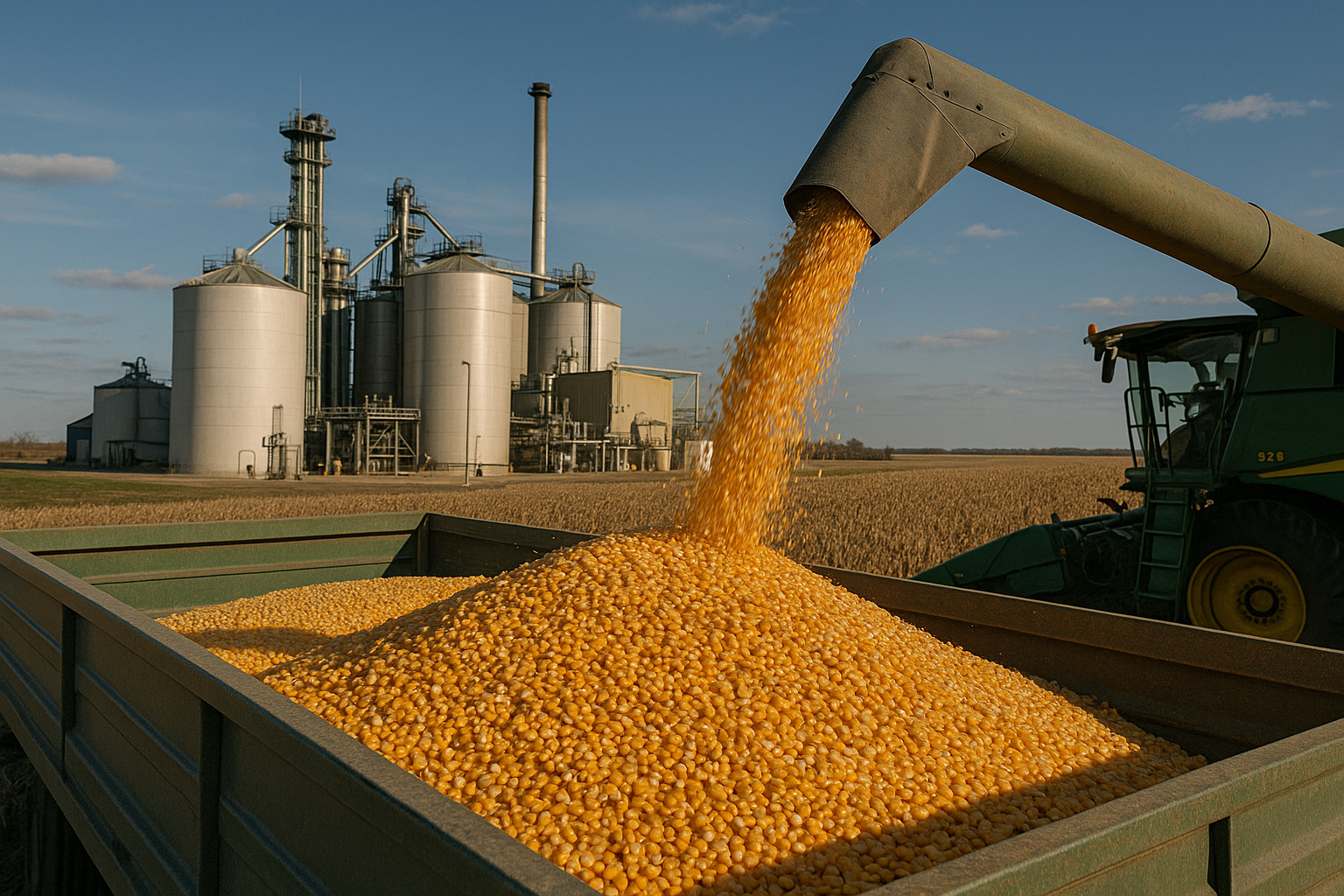Turning Fuel into Food: OECD-FAO Call for Biofuel Cuts to Ease Global Price Shocks
The OECD and FAO report finds that cutting biofuel production and keeping trade open during crises can significantly reduce global food price spikes, especially for maize and vegetable oils. It urges flexible biofuel mandates and coordinated international action to turn fuel crops into an emergency food reserve.

The OECD Development Centre and the Food and Agriculture Organization (FAO) have jointly authored an August 2025 working paper, exploring how climate extremes, conflict, and policy decisions have intensified volatility in global food markets, and how reforms in biofuel and trade policies could reduce the damage, particularly for the world’s poorest nations. Over the past two decades, the global food system has faced repeated crises, from the 2007–08 and 2011–12 price spikes to the 2021–22 surge, each magnified by droughts, floods, and political instability. The most recent shock came with Russia’s invasion of Ukraine in 2022, disrupting exports from two major grain and oilseed suppliers and driving maize prices up by 37% and wheat by 69% in a single year. This price shock was compounded by La Niña-induced crop losses, deepening the strain on global supply chains. For Least Developed Countries (LDCs), where agriculture represents 20% of GDP, over half of all jobs, and food imports are essential, such spikes can be devastating, especially since households in these nations spend more than half their income on food.
Turning Biofuel Feedstocks into Emergency Food Reserves
The report advances a bold but practical idea: the same feedstocks currently feeding biofuel production, chiefly maize, wheat, and vegetable oils, could serve as an emergency reserve for the food system during crises. Because these commodities are edible, redirecting them from fuel tanks to dinner plates could help dampen food price surges. To test this, researchers employed the OECD-FAO Aglink-Cosimo model, simulating two scenarios: the real-life geopolitical shock of 2022 and a hypothetical extreme weather event projected for 2026. They assessed two main policy levers: cutting biofuel production by reducing feedstock use or lowering blend mandates, and refraining from imposing export restrictions in times of crisis.
Modelling Results: Big Price Gains from Modest Cuts
The results were compelling. In the 2026 climate shock scenario, a 20% cut in biofuel feedstock use would reduce maize prices by 7.9%, vegetable oils by 6%, and wheat by 5.4%, offsetting more than half of the initial price surge for maize and vegetable oils. A deeper 50% cut would more than erase the price increases, returning levels to or below the baseline. Applying the same policy to the 2022 crisis would have reduced prices by 3–4%, offering tangible relief during a period of high volatility. However, the effect varies by crop: wheat shows the smallest response because it plays a far smaller role in biofuel production. Reducing blend mandates, rather than total feedstock use, delivers significant benefits for biodiesel and vegetable oils, but much less for maize and wheat, as ethanol production remains commercially viable even without policy mandates.
The Protectionism Problem
The simulations also laid bare the harmful role of protectionist trade policies. A 10% decline in global exports of grains and oilseeds during the simulated 2026 crisis would have caused wheat prices to spike by an additional 16%, maize by 8%, and vegetable oils by 9%. Such measures disproportionately harm import-dependent developing nations. For consumers in these countries, curbing biofuel feedstock use has the greatest impact on vegetable oils, where prices could drop by 7–21%, and on maize, with declines of 2–11%. Wheat benefits less but still sees modest improvement. The report stresses that avoiding export bans is as critical as adjusting biofuel policies when responding to price shocks.
Policy Roadmap for Resilience
The authors propose a two-pronged strategy. First, implement flexible biofuel mandates that automatically adjust in response to food price spikes or declining stock-to-use ratios, allowing for rapid redirection of feedstocks to food markets when necessary. They cite Brazil’s variable ethanol rules, the US Renewable Fuel Standard’s waiver system, and California’s low-carbon fuel flexibility as examples of frameworks that could be adapted. Second, ensure trade flows remain open during crises by resisting export bans and committing to transparency through mechanisms such as the G20’s Agricultural Market Information System, which tracks global food trade and policy shifts. While acknowledging potential downsides, including economic losses for feedstock producers, short-term increases in fossil fuel use, and potential political pushback, the report argues these are outweighed by the humanitarian imperative to stabilise food prices during emergencies. Success will depend on legal and institutional readiness for swift policy action, as well as coordinated international efforts to prevent one country’s response from worsening conditions elsewhere.
The study reframes biofuel systems not solely as tools for decarbonisation and energy diversification but also as underused safety nets for global food security. With the right flexibility built into mandates and trade policies, the infrastructure and supply chains supporting biofuel production could be temporarily repurposed to redirect millions of tonnes of edible crops from fuel tanks to food plates when global markets face severe stress. This would transform biofuel systems from a potential competitor for food resources into a critical instrument of humanitarian resilience, ensuring that when scarcity strikes, the priority shifts decisively from powering vehicles to feeding people.
- FIRST PUBLISHED IN:
- Devdiscourse










